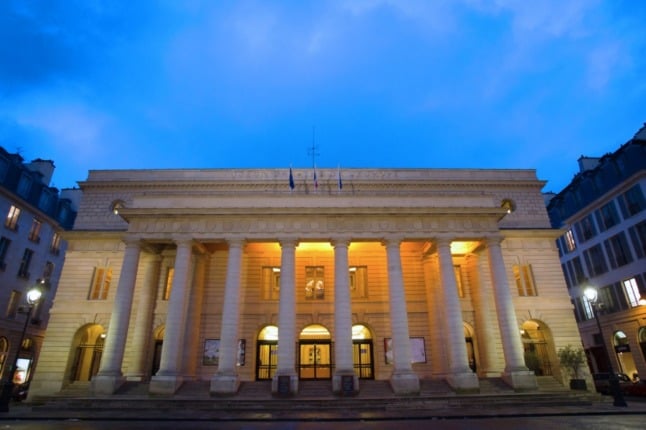Spymonkey will make their Scandinavian debut by performing their hit show “Stiff” in Uppsala and Stockholm later this month.
Spymonkey, founded in 1997, is made up of British-trained actors Toby Park, Petra Massey, Aitor Basauri and Stephan Kreiss.
“Stiff,” a black comedy that they developed with comedy director Cal McCrystal, was the troupe’s first show in 1998.
The show won a UK Total Theatre Award in 2000 and has today been performed in several countries, including the US, Spain, France, Syria, Mexico and Romania.
Paul Kessel, Director of the Regina Theatre in Uppsala, calls Spymonkey one of a few “small gems around the world,” among theatre troupes that work within the genre of black comedy.
“I’ve been trying to bring them over for three or four years,” Kessel tells The Local.
After flying to Holland to see the troupe perform upon the recommendation of a friend from a British theatre, he knew he wanted to have the troupe share their performances in Sweden.
“They’re quite big in other parts of Europe, but they’ve never been to Scandinavia before, Kessel says.
“It’s a small troupe…[but] they’re not small in terms of stature as artists.”
While the troupe’s more recent shows are too big to fit into Swedish theatres, “Stiff” is a smaller show that Kessel was finally successful in bringing to the country.
The show revolves around a tribute for the recently deceased wife of Forbes Murdston, a great tragedian who has been suffering writer’s block for years and who enlists a troupe of actors to help him produce the tribute.
“It’s very, very funny black humor, it really is,” Kessel says, noting the show has an “emphasis on the physical.”
Kessel says the show’s heavy reliance on body, rather than spoken, language means that it can be enjoyed by anyone.
“It should attract a very broad audience.”
“You don’t need to be proficient in English to understand it,” he says, though he does mention that some basic knowledge of the language may help audiences.
Ultimately, Kessel encourages both Swedes and non-Swedes alike to go see the show to have a bit of fun.
“I hope they’ll have a very good laugh. No more pretentious than that,” he says.
“I promise a good time.”
“Stiff” will be performed in Stockholm at the Boulevard Theatre on March 23rd and 24th at 7 PM. Tickets are 220 kronor. The show will then be at the Regina Theatre in Uppsala on March 25th and 26th at 7 and 6 PM, respectively. Tickets in Uppsala are 240 kronor for adults and 120 kronor for youth.
Win Free Tickets to Spymonkey!
The Boulevard Theatre in Stockholm is giving away two pair of tickets to both performances of Spymonkey to readers of The Local who are first to answer the following trivia question:
At what theatre was Stiff first performed?
The first four correct responses will each receive a pair of tickets.
The contest is now closed. Thanks to everyone who submitted a response.



 Please whitelist us to continue reading.
Please whitelist us to continue reading.
Member comments